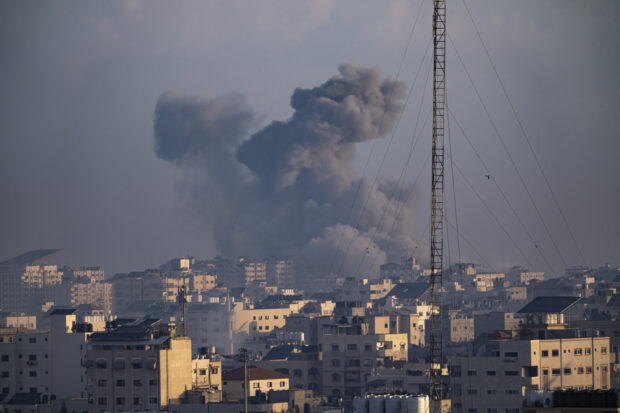
MANILA, Philippines — The only safe way out of the war-torn Gaza Strip is through the Rafah border crossing near Egypt, Foreign Affairs Undersecretary Eduardo de Vega said in a press briefing on Wednesday.
He said some Filipinos might be wondering why other countries were able to repatriate their citizens, but he stressed that these individuals were from Israel and not Gaza.
“The Philippines is not the only one having problems. All countries cannot repatriate their citizens from Gaza. There are reports about other nationals coming home, and it looks great. Whereas, some people in the Philippines might say: How come the Philippines hasn’t brought anyone home yet? No, those are being brought home from Israel,” De Vega said, speaking partly in Filipino.
Asked if there were other ways to bring Filipinos home, De Vega said: “If you mean plan B — an exit outside other than Rafah crossing — there is no other exit.”
He stressed, however, that the Department of Foreign Affairs (DFA) had started working with international partners diplomatically to resolve the matter.
Limited food supply
While the border remained close, De Vega said food was one of the main concerns of those in Gaza. Though Filipinos in the area have food, water, and electricity, these are limited.
“What we’re hoping is that the corridor be opened and the foreign nationals be allowed to cross Egypt as soon as possible,” he said.
But the Egyptian government said it’s not up to them to open the border.
“It’s not their fault that no foreigners cross. It’s the Israelis who’re still controlling that part. Once they cross, they reach the Egyptian border, and then the Egyptians then decide to give entry permits,” De Vega said.
Despite the uncertainty, De Vega noted that the Israeli government told foreign nationals to “be prepared” as the border would be opened at “any day now.”